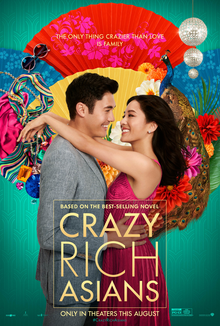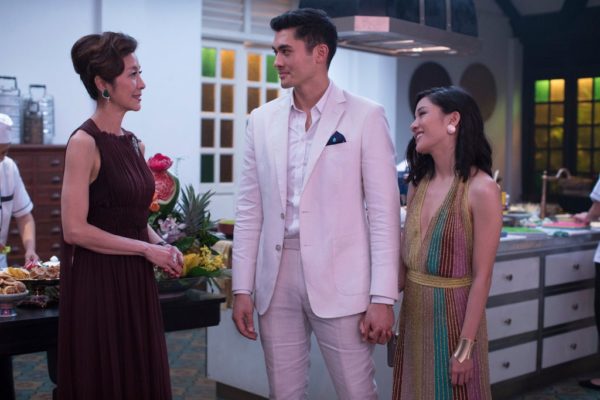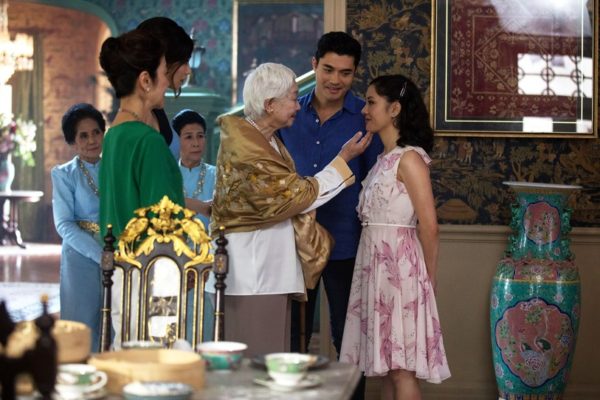Jon Chu’s romantic comedy/satire, Crazy Rich Asians, opens up new cultural horizons for moviegoers. It’s the first mainstream Hollywood film since The Joy Luck Club 25 years ago to feature an all-Asian cast, and that’s definitely something of a breakthrough. White British actors appear in the first scene, a set piece in racism and revenge, but that’s a mere technicality in a motion picture brimming with Asians and steeped in Chinese culture.
Now playing in theatres, it’s a light-hearted romp, with serious undertones, into the extravagant world of Asian jet setters.

Nick Young (Henry Golding) and Rachel Chu (Constance Wu) live together in New York City. She’s an economics professor and he teaches history. When Nick accepts an invitation to attend his friend’s wedding in Singapore as best man, he invites Rachel along for the ride. It’s an opportunity for him to introduce Rachel to his boyhood home and his mother.
Once on board the Asian-bound plane, they’re ushered into the first-class compartment, prompting Rachel to wonder why Nick can afford such expensive tickets. Forced to offer an explanation, Nick reveals that he comes from a well-to-do, or “comfortable,” family.
In Singapore, she discovers that Nick’s family is “like royalty” and “crazy rich,” and that his friends are into conspicuous consumption. They live in mansions set in immaculately-tended tropical gardens, and they pamper their pets. Aptly enough, one woman calls her perfectly-groomed Maltese dog Rockefeller.
Rachel comes from a much less privileged background, having been raised by a single mother who had to scrimp and save to survive.
Soon enough, Rachel meets Nick’s imperious mother, Eleanor (Michelle Yeoh), who professes to be “very impressed” by her, but who really has deep reservations about her. Eleanor’s husband, the city state’s biggest real estate developer, never appears on screen, adding to her heft as a formidable household presence.
Despite its darker moments, the film is a fun-filled, schmaltzy excursion into the pleasures of hedonism, materialism and the good life. Nick and Rachel, accompanied by their friends, enjoy the culinary joys of Singapore’s outdoor food stalls and restaurants. Wedding guests are treated to a prepaid shopping spree. A bachelor’s party takes place aboard a huge barge in mid-ocean.

Throughout it all, the camera pans on Singapore’s modern skyline and lush coastline, inviting comparisons to Hong Kong.
As Rachel immerses herself in local society, petty jealousies and resentments bubble to the surface, making her feel like a villain and a gold-digger. Much to her relief, Nick assures her he appreciates her simplicity. Eleanor is not so generous. “You will never be enough,” she says cattily, suggesting that Rachel’s intelligence and refined appearance cannot compensate for her humble origins.
Ultimately, then, Crazy Rich Asians is about the enduring importance of class. In Eleanor’s rarefied world, money talks. “You’re not our own kind of people,” she tells Rachel in a cruel, insensitive remark.

The overarching questions that lurk behind Rachel’s unpleasant encounters with Eleanor are whether Nick will abide by his mother’s wishes to disengage from her, and whether he will remain loyal to Rachel.
It’s a love story we’ve seen in countless Hollywood movies over the decades, but Crazy Rich Asians does it in style and, to a degree, in Mandarin.